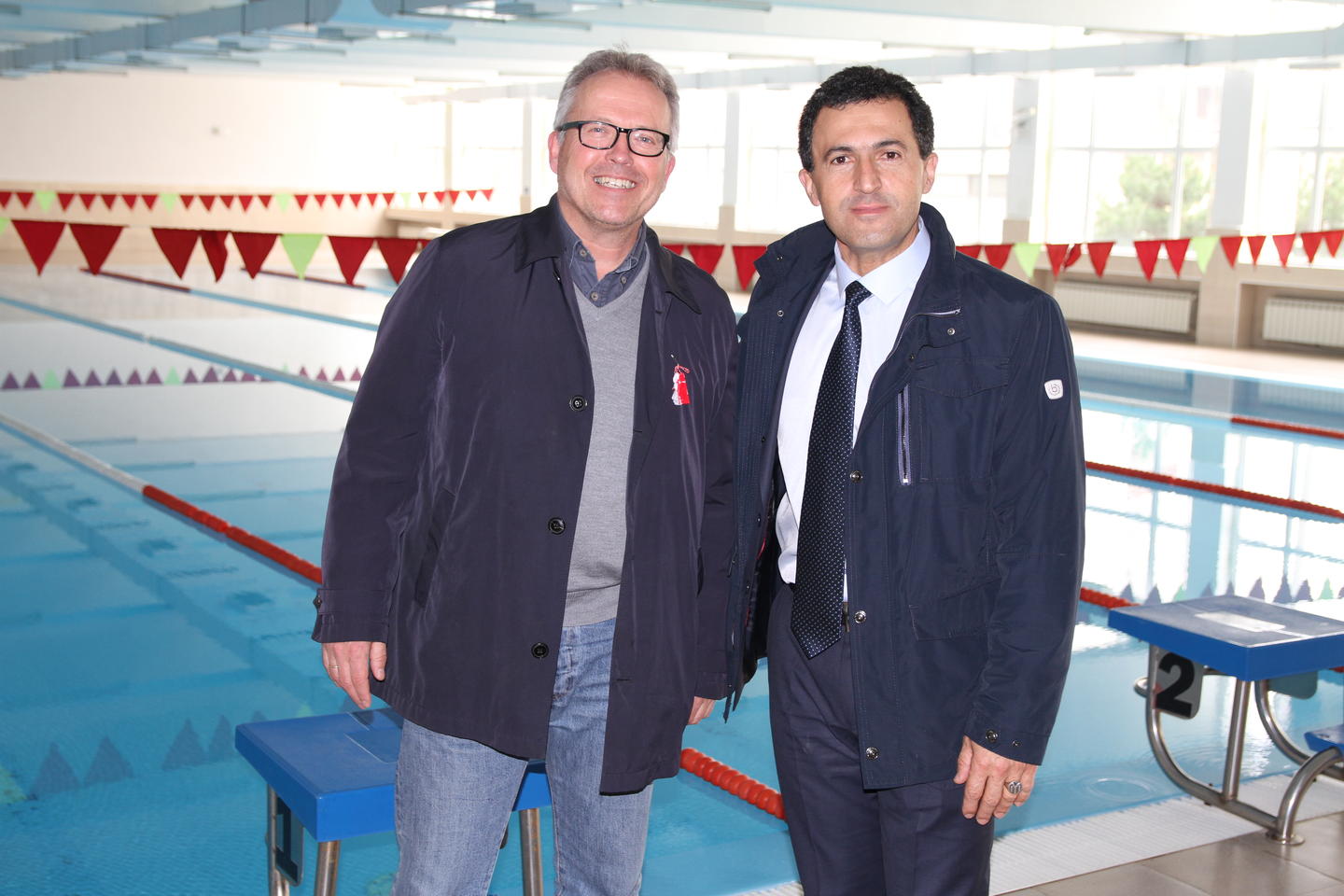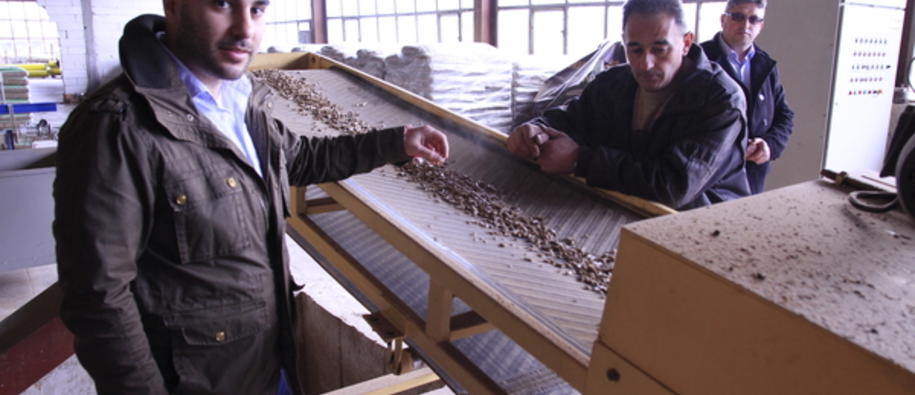Zlatograd, a town in the south of Bulgaria, is one of 33 Bulgarian municipalities receiving funding in order to transform heating systems in public buildings to solutions that are more climate friendly and energy efficient.
“The secondary school ‘Vasil Levski’ in Zlatograd is one of few schools in Bulgaria with a swimming pool. The pool means a lot to the students, and it has been a stepping-stone for top-level swimmers. The financial support we receive from Iceland, Liechtenstein and Norway will allow us to heat the water with an efficient pellet burner instead of wood, which we use today,” says Miroslav Yanchev, mayor of Zlatograd.
In addition to funds to improve the heating system at Vasil Levski I school, Zlatograd has received support to improve performance and reduce greenhouse gas emissions from the heating system in the elementary school ‘Antim 1’, and to the municipal town hall. Old oil furnaces are replaced with energy efficient pellet burners.
“The goal is that the projects shall both contribute to improved air quality for students and staff, and reduced CO2 emissions,” says Yanchev.
Find out more about the project.
Floor heating
A prerequisite for receiving support for upgrading heating systems, is that the buildings have undergone energy efficiency measures. This could be the installment of new windows or extra insulation in walls and/or the roof. There can be low temperatures in Bulgaria during the winter, and an overarching goal for the projects is that the energy should be used efficiently.
In Rudozem, a municipality in the south of the Rhodope Mountains, the children in ‘Snow White’ kindergarten will play on floors heated by warm water underfloor heating. The project is realised with assistance from, among others, the Norwegian partner Greenzone AS. The company is an independent power producer whose core business is energy generation from renewable sources.
Find out more about the project.
“Floor heating provides both higher comfort and improved energy efficiency than the old radiators we use today. The solution is quite cost effective because we put water pipes and new floor on top of the existing floor,” said Rumen Pehlivanov, Mayor of Rudozem.
Several public buildings in Rudozem will be heated with heating systems installed with support from the EEA Grants. Natural gas is selected as fuel, due to lack of storage room for the large quantities of pellets which would have been consumed to keep the buildings warm. The transition from diesel to natural gas provide climate benefits, and reduces local particle emissions.
Creating new jobs
A part of the funding under this programme is allocated to nine private companies that produce pellets from wood.
One of the factories that receive support is located in Sarnitsa, where tourism and forestry are the main industries.
The pellets manufacturing factory Inter-MACHINEX utilises wood from the local forest industry. The funding from the Grants – together with own funding – has enabled the factory to invest in new equipment. Production capacity has increased by 30 per cent, and the factory is now operated in two shifts. The Norwegian company Norwegian Forestry Group is project partner and is contributing with best practice and experience in the use of biomass.
“The support we received enables us to invest in equipment that permits the wood to get dried and cleaned faster and better than before. It takes only one hour from we feed the wood into production, until we can fill the pellet in sacks. The expanded production capacity means that we plan to hire six new employees,” says the owner of Inter-MACHINEX, Antoni Ivanov.
Training in energy efficiency and renewable energy
In addition to specific projects in energy efficiency and renewable energy, the programme supports training in the same fields. Through nine projects, several with Norwegian partners, 2 000 employees in the public sector receive training that gives them a better understanding of renewable energy and energy efficiency.
“Through the educational component of the energy programme in Bulgaria, we solve a challenge we have seen in both local and central authorities: The employees do not fully see and understand the value of renewable energy and energy efficiency. The courses are also very practical laid out, so that participants can apply the knowledge in their daily work,” says Bjørn Aulie, programme coordinator for the EEA Grants in Norwegian Water Resources and Energy Directorate (NVE), the donor programme partner.
“We are very pleased to see that there are many Norwegian partners in all parts of the programme,” Aulie added.
About the programme
The € 13.3 million 'Energy efficiency and renewable energy' programme in Bulgaria consists of 53 projects focusing on restructuring of heating systems in public buildings, private sector production of fuel from biomass, training and addressing the development of the electricity market. 26 of the projects have a Norwegian partner. The Norwegian Water Resources and Energy Directorate (NVE) is the Norwegian donor programme partner in the programme as well as the donor project partner for one pre-defined project on electricity markets.
Read more about the programme.
The article is produce based on material from the the Norwegian Water Resources and Energy Directorate (NVE).

